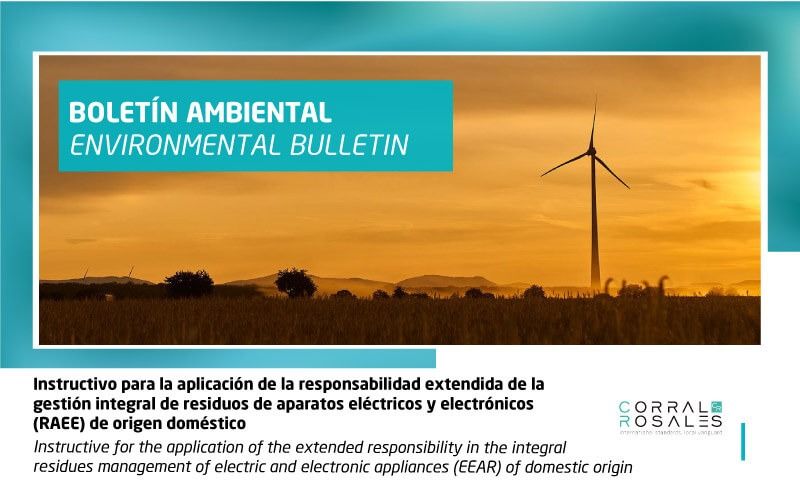It may seem strange for a company to be its own shareholder, i.e., to hold a certain number of shares issued by the company itself, commonly known as treasury shares or treasury stock. However, there are several reasons why a company might be interested in acquiring its own shares, and their regulation becomes necessary, since it entails equity and corporate risks. This matter would merit a more in-depth analysis, but this article aims to describe in broad outline the main purposes of treasury stock, the risks it presents, current regulation and possible reforms.
1. Main purposes of treasury stock and its risks
From an equity perspective, the acquisition of treasury stock essentially produces the same effects as a distribution of dividends, especially considering that the Law on Companies determines that, in order to acquire treasury stock, it is necessary to use funds taken from net profits which may be disposed of by the general shareholders’ meeting. The company uses the net profits, which are part of the shareholders’ equity, to pay the selling shareholder the value of the acquired shares. The renowned Spanish lawyer Jesús Alfaro states that: “when a company acquires its own shares, in fact, what it does is to distribute part of its equity to the shareholders or members whose shares or units it acquires.”[1]
In addition, if the treasury stock is resold at a higher value than that at which it was acquired, the shareholders will benefit, since this transaction will generate a profit for the company, which will ultimately be consolidated in the total profit belonging to all shareholders.
From a tax perspective, it is more convenient for the shareholders to receive income from the sale of shares than from dividends, since the income in the first case is taxed by the Single Income Tax (Impuesto a la Renta Único) over the profit on the sale of shares, while the income from dividends becomes part of the global income subject to Income Tax. In short, the shareholder will have the option to choose between keeping its participation in the company or obtaining a tax benefit on the value received, which could be in the shareholder’s interest in case it considers that its investment has yielded the expected results. It will also be very important to consider whether by selling part of his shares to the issuing company itself, the capital percentage held by shareholder decreases – diluted – or not.
From a different standpoint, holding treasury stock allows certain financial transactions, such as the issuance of convertible bonds. Thus, when the bonds are converted into shares, it is not necessary to carry out a capital increase, but it can be done with shares held in treasury.
The problem is that these types of transactions affect the equity of the company, since the capital stock ceases to be a guarantee against creditors, since, in accounting terms, the capital stock does not have a cash counterpart, but the counterpart is the company’s own shares. This means that the capital stock is not invested in actual assets. For these reasons, as will be discussed below, the legislator is becoming increasingly wary of these transactions.
2. Current regulation
Pursuant to the Law on Companies, corporations may acquire their own shares in order to: (i) resell them; or (ii) redeem them, provided that the requirements contained in article 192, transcribed below, are met:
“The general shareholders’ meeting may decide that the corporation acquires the shares issued by it, provided that the following requirements are met:
- That a majority of the shareholders attending the corresponding meeting resolve the acquisition of the shares;
- That only funds taken from net profits are used for such transaction;
- That the capital corresponding to the acquired shares is fully paid-in; and,
- That in no case shall the acquisition result in a decrease in the subscribed capital.
As long as the shares are held by the company, the rights inherent to them will be suspended.
A resolution by the general shareholders’ meeting will also be required for these shares to be put back into circulation.”
Article 196 of the Law on Companies refers to the redemption of shares and establishes that:
“The redemption of the shares will be done against the capital stock, for which its reduction shall be previously resolved, in the form established by this Law or the bylaws. The redemption of shares may not exceed fifty percent of the capital stock”
It derives from the foregoing that corporations, once they acquire their own shares with net profits, may either reintroduce them into the legal market or redeem them by means of a capital reduction.
Prior to the entry into force of the Law for the Modernization of the Law on Companies – in December 2020 – the redemption of shares against distributable profits and not necessarily against the stock capital was allowed, in which case, there was no capital reduction. This possibility was eliminated, which evidences a certain reaction from the lawmakers with respect to the acquisition of treasury stock, which, with this possibility, could be kept in the company without the need to reduce capital or reintroduce them into circulation.
With respect to limited liability companies (compañías de responsabilidad limitada), Article 112 provides as follows:
“The redemption of the corporate units will be done against the capital stock, for which its reduction shall be previously resolved, in the form established by this Law or the bylaws. The redemption of the units may not exceed fifty percent of the capital stock.”
Based on the above and derived from the very nature of limited liability companies, they can only acquire their own shares in order to redeem them.
At this point, the reader may be asking themselves, in what time does the company have to resell or redeem the shares, in the case of a corporation, or redeem the units, in the case of a limited liability company? Well, this very important point is not currently regulated by the Law on Companies. Therefore, although the possibility of redeeming shares against distributable profits has been eliminated, companies do not have a time limit in which they must either redeem them or resell them.
In other legislations, such as Spain, the regulation of the acquisition of treasury stock is much stricter since it is expressly prohibited[2]. In the event of contravention of this prohibition, a limit of one year is established for the resale or redemption of the shares or units, and a fine of up to the nominal value of the shares or units is imposed.
Moreover, our legislation does not provide for express regulation on this matter for companies listed on the stock exchange, where these transactions would be particularly dangerous.
Possible reforms
As we have anticipated, the Ecuadorian lawmaker is becoming more and more reluctant to this type of transactions, and although it is not expected to reach a rigidity similar to the Spanish legislation, the draft Law Reforming the Law on Companies for the Promotion of Corporate Governance, currently in process in the National Assembly, foresees the inclusion of the following paragraph in article 192 in fine of the Law on Companies:
“The shares must be transferred within a maximum period of one year from their acquisition. Once this period has elapsed without the transfer having taken place, the administration shall immediately proceed to call a general shareholders’ meeting to resolve to redeem the repurchased shares, with the consequent reduction of the capital stock.”
This constitutes a significant change compared to current legislation, since companies will not be able to hold treasury stock indefinitely, which would consequently discourage this type of operation. This change could also be seen as protection for minority shareholders and third-party creditors.
It will be very important to regulate these types of transactions in companies listed on the stock exchange in order to preserve their transparency.
[1] Alfaro, J. (2020) Los negocios de una sociedad sobre sus propias acciones o participaciones. Almacén de Derecho. https://almacendederecho.org/los-negocios-de-una-sociedad-sobre-sus-propias-acciones-o-participaciones
[2] Artículo 134 de la Ley de Sociedades de Capital de España: “En ningún caso las sociedades de capital podrán asumir o suscribir sus propias participaciones o acciones(…)”
Sofía Rosales
Associate at CorralRosales
srosales@corralrosales.com














